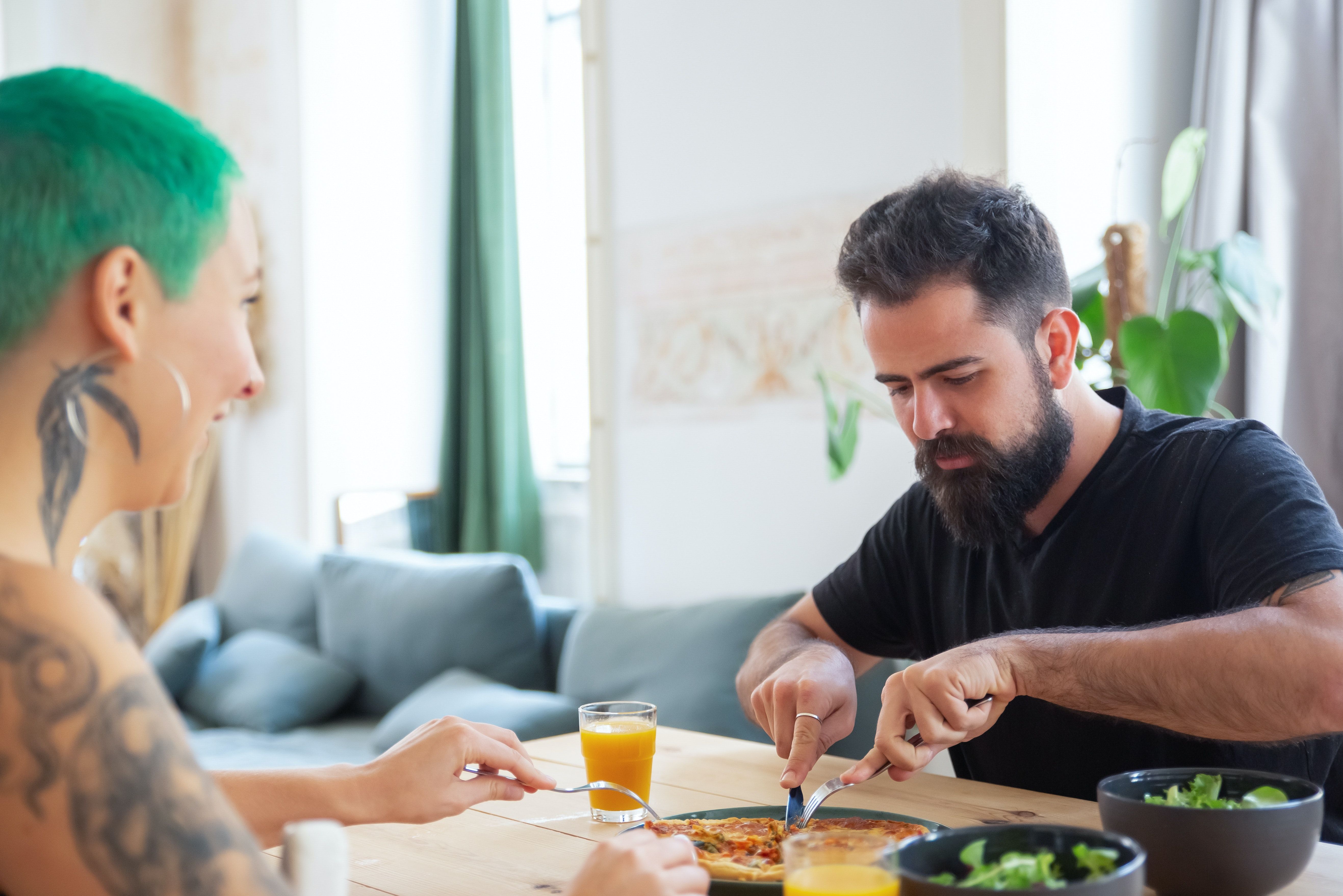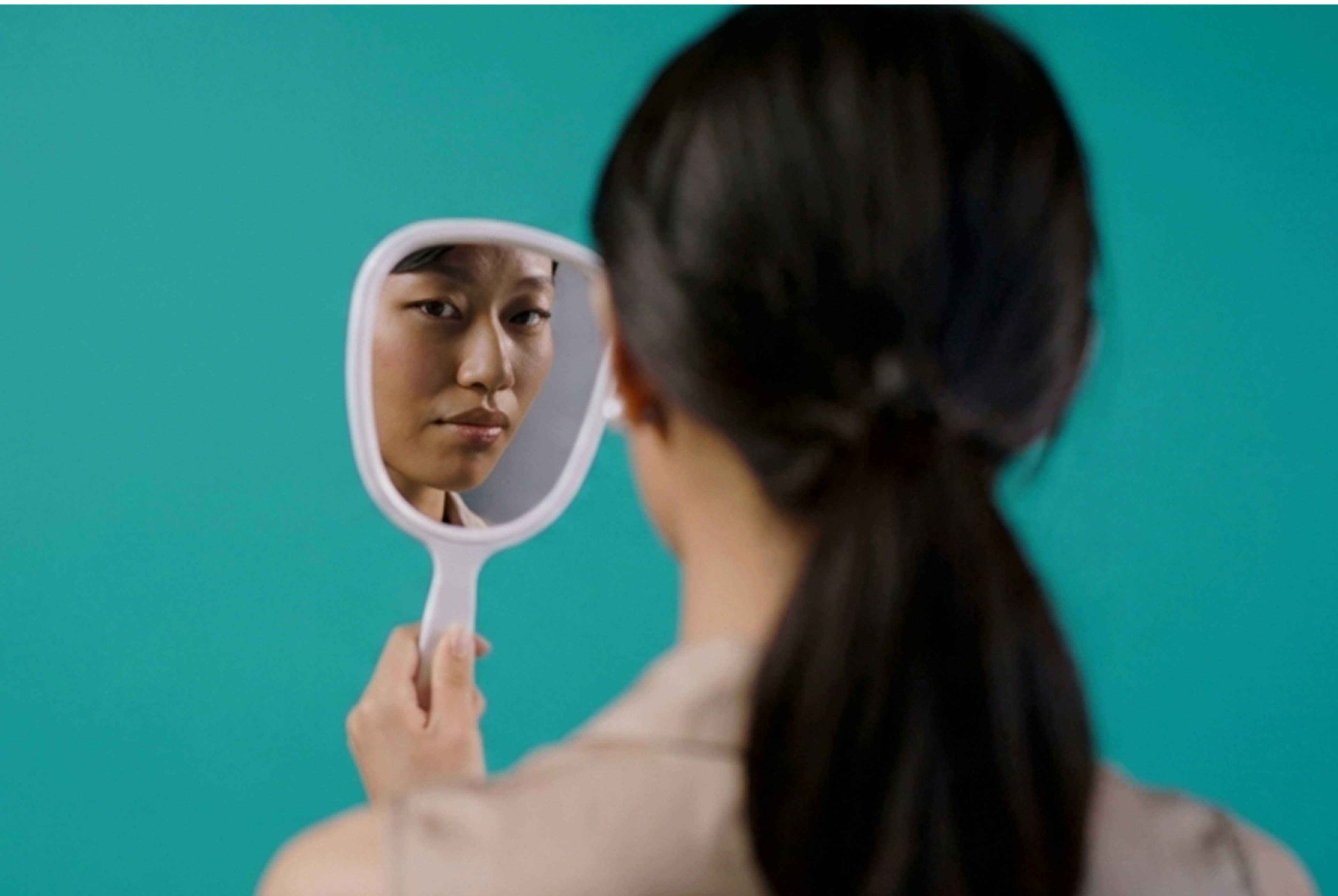

When Equip Peer Mentor Stacy Jones entered eating disorder treatment as an adult, she was reluctant to get her friends and family involved in the recovery process. “I was resistant at first to sharing with others what I was going through and that I needed their support,” Jones says. “I felt shame around my eating disorder and wasn't sure how those in my life would react.”
The hesitation Jones felt is an unfortunate but common consequence of pervasive stereotypes around who gets eating disorders. Many people associate eating disorders with adolescents and teenagers, but the reality is that they don’t discriminate based on any demographic factor, including age. In fact, according to the National Institute of Mental Health, the average age of onset for binge eating disorder (BED) is 21 years old and the average age of onset for both bulimia and anorexia is 18 years old. Still, many adults continue to feel shame around their struggles, which can impede their ability to seek out the kind of support that experts consider critical to recovery.
“Many adults feel isolated and alone when starting in eating disorder treatment, and interpersonal relationships can be such an asset in combating that,” says Equip Director of Adult Programs, Lara Effland, LICSW. “Eating disorders tend to be an isolating and secretive disorder. Bringing loving people into your recovery can break down feelings of shame, loneliness, and isolation.”
While loved ones are considered an integral part of family-based treatment (FBT)— the gold standard for eating disorder treatment in children and adolescents—those over a certain age may feel less comfortable seeking support from friends and family members for a number of reasons. And depending on where and how adults receive care, their treatment team may not always prioritize the inclusion of close connections in recovery. But many, like Jones, have found that leaning on loved ones throughout treatment can make all the difference in long-lasting success—and there's evidence to support this.
“It took some time, but I finally realized that if I truly wanted my life to be different and to recover, I needed support from those who cared for me,” Jones says. “Once I had those conversations and could lean on the people around me, my recovery started to shift. I became more committed to and involved in my treatment. Receiving compassion and care from my support network allowed my capacity for the uncomfortable to grow.”
Why social support can be essential in adult treatment
According to Equip therapist Danielle Shlomo, LMSW, the hesitation that many adults feel when it comes to seeking support is often rooted in common fears. “Many people struggling with eating disorders may have a profound sense of shame or distress, making it extremely challenging to seek support from others or openly discuss their experience,” she says.
However, Shlomo explains that having a strong support network can be essential for helping someone initiate change, especially if their own internal beliefs still align with those of the eating disorder. Perhaps counterintuitively, external support can also help reduce the feelings of shame that may prevent someone from reaching out in the first place. “A network of chosen supports fosters a positive environment for the person struggling, alleviating the sense of isolation in their journey,” she says.
While FBT typically involves a young patient’s close family members or caretakers, adults with eating disorders can bolster their treatment with a variety of key players, including relatives, friends, romantic partners, and more. The majority of research around social support in treatment has focused on young populations, but many clinicians incorporate the same tenets into adult treatment. That may mean bringing family, chosen family, and friends into treatment while using evidence-based modalities like enhanced cognitive behavioral therapy (CBT-E), acceptance and commitment therapy (ACT), and dialectical behavioral therapy (DBT).
Current research on family support in adult eating disorder treatment is sparse. However, the evidence that does exist is promising: one study exploring the topic found that including family members in even just a single therapeutic session could improve odds of recovery. A qualitative analysis found that eating disorder patients in romantic relationships commonly considered certain qualities in their partner to be important to their recovery, including patience, flexibility, and compassion. Another study found social support to be imperative in adult recovery, and that beyond family members, significant figures in a person’s life including friends, colleagues, neighbors, people from religious groups, and others could help the person coping with the disorder.
“In my clinical experience, many adults are often surprised by how genuinely supportive the people in their lives are once they take the leap and involve them in their treatment journey,” Shlomo says. “No form of support is too small to make a difference in someone’s recovery. In the context of eating disorder recovery, every bit of support matters in helping someone build a life that is truly worth living.”
How loved ones can be involved in adult treatment
There’s no single way to offer support to an adult in eating disorder treatment, but there are some critical things that friends, family members, romantic partners, and other connections can do to have a positive impact on recovery.
“Some people rely on their loved ones for accountability,” Shlomo says. “This can involve things like sharing meals together in person or virtually, assisting with weekly weight and vital checks, or providing support for any behavior changes they need help with.”
It can also be helpful for loved ones to simply foster a safe, encouraging environment that challenges harmful societal norms related to physical appearance, thinness, “healthy eating,” and restrictive diets. “Many adults struggling with eating disorders might not realize that they don't have to confront beliefs stemming from harmful societal norms alone,” Shlomo says. “Receiving support from others in this area can make a significant difference.”
Effland points out that unlike in adolescent treatment, a patient’s supports aren’t necessarily considered responsible for their well-being, but are thoughtfully invited to participate. Once invited, however, she says it’s critical for loved ones to educate themselves about eating disorders and how they can show up to help support recovery.
“Adult support can positively or negatively affect treatment,” she says. “So it’s important to include psychoeducation for the supports, and help them learn how to build a supportive and recovery-focused relationship.” Jones agrees, adding, “a support team as an adult is not about having someone telling you exactly what you need to be doing and ensuring you do it. It’s about having others who can help with the tasks that make life more stressful, remind you of the tools and skills that help, allow you to be seen and heard, and remind you to live life alongside recovery.” At Equip, a patient’s supports are fully integrated into treatment and given a variety of resources—including groups, provider sessions, and a dedicated mentor—to best arm them with the knowledge and strategies they need to provide effective support.
Patients can work in collaboration with their treatment team to decide the type of support strategies that work best for them at any given point in their recovery. A few of the most common, actionable ways Effland has seen support members participate in a loved one’s treatment include:
- Acting as a supportive listener
- Becoming aware of their own health habits and rules
- Building a calm and consistent home life for themselves and (if applicable) for their loved one in recovery
- Seeking their own support or therapy to work through tough dynamics, issues, and stressors in the relationship
- Continuing to work on effective communication and sharing how they feel
- Learning what your loved one needs when struggling with shame, anger, anxiety, and other distressing emotions
As for any tactics to avoid, Effland says it’s vital to take a nonjudgmental approach and relinquish any desire to control your loved one. “It’s important to refrain from giving advice, counsel, or commentary, or nagging, scolding, or trying to control their recovery,” she says.
Creating a support network that works for you
The most important thing to know about seeking support from loved ones is that there’s no one-size-fits all template for what that should look like. “Some people feel most comfortable keeping a small support network of one to two friends or family members, while others may feel it’s right for them to extend their circle to include more people,” Shlomo says. “If you’re unsure about who to include in your support network or where to begin the conversation, try approaching it one person and one conversation at a time.”
Jones says that while it can be difficult to identify people to include, it’s important to set a high bar. She advises prioritizing people who can extend compassion and understanding while holding space for the complexities of recovery and fostering a safe environment, even through hard times. And while receiving support can be vital to recovery, it shouldn’t be rushed. She believes it’s essential to take time to form and nurture authentic, deep connections if your support network is to be truly supportive.
“It can bring up a lot of emotions not having friends or family who can support you in your recovery,” Jones says. “Know that whatever it brings up for you is understandable and it doesn't mean you are alone in this. Taking time to explore the support you desire and ways to make those connections can be so powerful.”
If you begin treatment at Equip without a support network in place, your team will work with you to identify who might be helpful to include and how to involve them in your recovery. Because the reality is, recovering from an eating disorder is a massive challenge regardless of your age, but it becomes infinitely more possible and sustainable when you bring your village. And if you don’t have that village yet, we’re here to help you build it.
- Leonidas, Carolina, and Manoel Antônio Dos Santos. “Social support networks and eating disorders: an integrative review of the literature.” Neuropsychiatric disease and treatment vol. 10 915-27. 21 May. 2014, doi:10.2147/NDT.S60735
- Tesselaar, Juliana M et al. “A qualitative analysis of relationship advice from the perspective of people living with and recovering from eating disorders while in diverse romantic relationships.” Eating disorders, 1-19. 16 May. 2023, doi:10.1080/10640266.2023.2206753
- Fleming, Carmel et al. “Working with families of adults affected by eating disorders: uptake, key themes, and participant experiences of family involvement in outpatient treatment-as-usual.” Journal of eating disorders vol. 10,1 88. 29 Jun. 2022, doi:10.1186/s40337-022-00611-z







